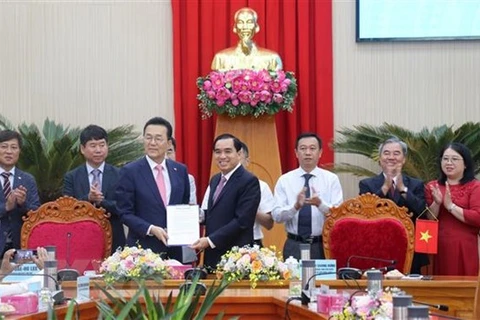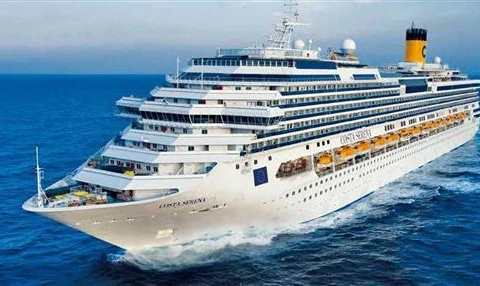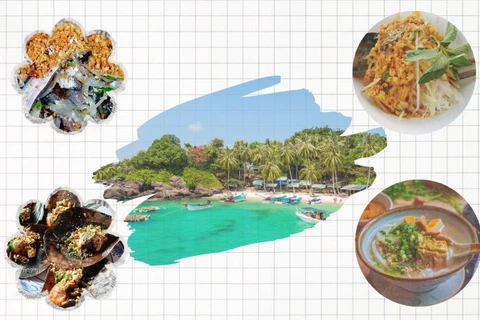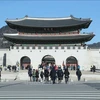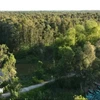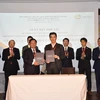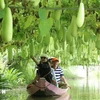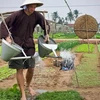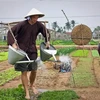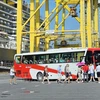 Phu Quoc island, known for its natural landscapes and strategic proximity to major Southeast Asian cities, has rapidly emerged as one of Vietnam's fastest-growing destinations. (Photo: Vin Group)
Phu Quoc island, known for its natural landscapes and strategic proximity to major Southeast Asian cities, has rapidly emerged as one of Vietnam's fastest-growing destinations. (Photo: Vin Group) HCM City (VNA) – Phu Quoc island, known for its natural landscapes and strategic proximity to major Southeast Asian cities, has rapidly emerged as one of Vietnam's fastest-growing destinations, property consultancy Savills Vietnam said.
With tourism acting as the backbone of the island's economy, Phu Quoc has encountered growth opportunities but also challenges. To become a solid international destination, Phu Quoc must define its identity, the firm suggested.
Since late 2012, improved accessibility and the expansion of flight routes to Phu Quoc have boosted tourism and hotel development. Presently, the island has 25,000 accommodation units, most of which are small, locally operated properties. However, 15% of the inventory includes upper upscale and luxury hotels and resorts. Compared to regional competitors, Phu Quoc’s accommodation stock is only equal to 27% of the stock in Phuket and 31% of that in Bali.
Domestic visitors accounted for over 85% of the island’s visitors before the pandemic. This strong base of local clientele supported a sound recovery in 2022, and tourist arrivals equalled the 2019 base at 5.1 million.
Phu Quoc is still in the early stages when it comes to international arrivals. Before the pandemic, the numbers represent only 6% of Phuket’s international arrivals, and 11% of those to Bali.
Phu Quoc has a competitive edge compared to other key tourism destinations in Vietnam because of its international visa policies. Travellers from all countries can enter Phu Quoc without a visa, provided that the island is their sole destination.
Vietnam’s extension of the validity of tourist e-visas to 90 from 30 days, with multiple entries, from August 15 has created opportunities for Phu Quoc to welcome crowds of foreign visitors.
Connectivity is a vital factor in the development of an international destination, and Phu Quoc faces significant obstacles in this matter. Phuket and Bali are well-established destinations and enjoy excellent international connectivity with frequent and direct flights from major cities such as Singapore, Shanghai, and Hong Kong (China). In contrast, Phu Quoc has fewer direct flight routes and less frequent flights. Phuket offers 150% more daily flights, while Bali has 430% more daily flights compared to Phu Quoc.
 With tourism acting as the backbone of the island's economy, Phu Quoc has encountered growth opportunities but also challenges. (Photo: VNA)
With tourism acting as the backbone of the island's economy, Phu Quoc has encountered growth opportunities but also challenges. (Photo: VNA) Additionally, Phuket and Bali have stronger links with local transport hubs, boasting significantly more flights to Bangkok and Jakarta. Phuket has 330 flights per week to Bangkok, and Bali has 400 flights per week to Jakarta. Phu Quoc has approximately 160 flights to Ho Chi Minh City and 90 flights to Hanoi.
In Phu Quoc, temporary suspensions have been implemented for flights to Taiwan (China) and India. It is worth noting that there are currently no flights from Singapore, which serves as an important transportation hub in Asia. This puts Phu Quoc at a disadvantage when compared to destinations like Phuket and Bali.
Mauro Gasparotti, Director of Savills Hotels, commented: “Burgeoning tourism has fuelled hospitality real estate growth in Phu Quoc. In the past, many developers rushed to enter without careful planning and execution with replication of products that disregard market trends, the islands heritage or product identity.”
“Despite high-quality developments, the lack of central attractions in Phu Quoc reduces its appeal and there are no sound tourism anchors. The oversupply of certain products like shophouses is also a concern. The island is facing the challenge of numerous unoccupied commercial spaces with low traffic, which can negatively impact its vibrancy and create a sense of neglect.”
Mauro concluded: “To preserve Phu Quoc's natural appeal and maintain an attractive environment for the local ecosystem and the tourism industry, it is crucial to implement revitalisation initiatives and prioritise sustainability elements. Sustainability, local communities, and cultural preservation are fundamental to tourism development and must be considered from the planning stage.”
“Addressing the challenges of connectivity, infrastructure, and coordination will be essential for Phu Quoc's successful transformation into a world-class international destination. In addition, to compete, and affirm its position on the international tourism map, Phu Quoc’s tourism industry must promote itself by utilising communication activities and marketing channels properly and efficiently. The international marketing exposure is insufficient to capture attention. State agencies, local authorities and senior industry players should coordinate to ensure this happens effectively.”
“We are still very confident in the island’s potential and its ability to grow in the future,” he said./.
